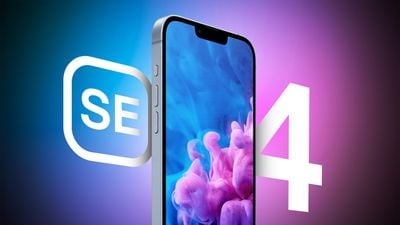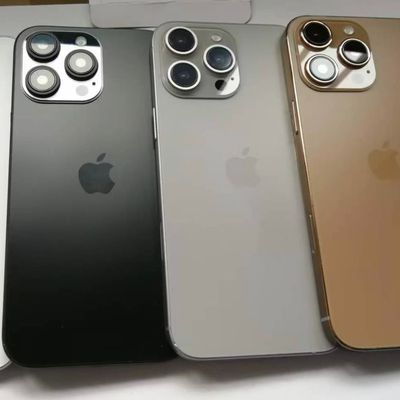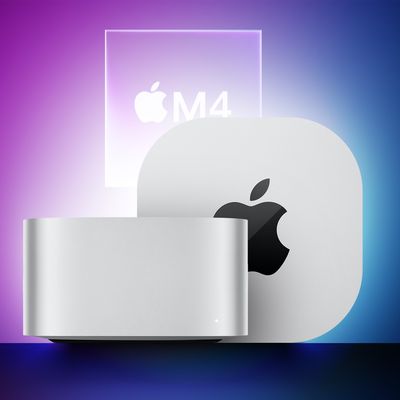Some iPhone SE 4 OLED Panels to Be Supplied by LG Display
Apple supplier LG Display is expected to be the secondary vendor for the OLED panels that will feature on next year's fourth-generation iPhone SE models, reports The Elec.

The fourth-generation iPhone SE is rumored to feature an iPhone 14-like design with an OLED display, Face ID instead of Touch ID, a USB-C port, an Action button, and an all-screen look that does away with the Home Button. The device's display is expected to grow in size from 4.7 inches to 6.06 inches and use OLED for the first time.
BOE will be the primary supplier of the OLED panels, with LG Display providing backup, according to today's report. In previous years, Apple has solely tasked China-based BOE to supply LCD-based iPhone SE panels. But BOE has struggled before with yield issues for OLED iPhone panels, so bringing LG Display into the picture as a secondary supplier could be Apple's way of having a security blanket in case of future problems.
The panel prices for the iPhone SE 4 are said to be a lot lower than suppliers charge for the OLED displays used in the iPhone 15, since the panels for the SE will use legacy parts identical to those used in the iPhone 13 and iPhone 14, so the suppliers won't need to make new investments in R&D. Display manufacturers are believed to have been bidding to supply the panels since at least last August. Mass production of the device will reportedly begin in October of this year, with the iPhone SE 4 expected to arrive in spring 2025.
Popular Stories
Leaker Sonny Dickson is back today with a new dummy unit image showing all four iPhone 16 Pro color variants, including the rose gold or "bronze" unit that replaces Blue Titanium in the existing iPhone 15 Pro models. The iPhone 16 Pro models are expected to come in black, white or silver, gray or "Natural Titanium," and a rose or rose gold color replacing Blue Titanium, according to Apple...
Multiple rumors have suggested that the iPhone 16 models are going to have an all-new button that's designed to make it easier to capture photos when the devices are held in landscape mode. Apple calls the button the Capture Button internally, and it is going to be one of the most advanced buttons that's been introduced to date with support for multiple gestures and the ability to respond to ...
Apple typically releases its new iPhone series in the fall, and a possible September 10 announcement date has been floated this year, which means we are just one month away from the launch of the iPhone 16. Like the iPhone 15 series, this year's lineup is expected to stick with four models – iPhone 16, iPhone 16 Plus, iPhone 16 Pro, and iPhone 16 Pro Max – although there are plenty of design...
Apple's iPhone 16 series is expected to debut in September 2024. This release follows Apple's trend of introducing new iPhone models annually in the fall. While the exact date has yet to be officially confirmed, the day of Tuesday, September 10 has been rumored as a possible announcement date, and September has traditionally been the month when Apple unveils its latest smartphone innovations. ...
Apple is moving forward with its project to develop a tabletop robotic device, according to Bloomberg's Mark Gurman. Subscribe to the MacRumors YouTube channel for more videos. The device would feature a large iPad-like display mounted on a "thin robotic arm" that would allow the display to tilt and up and down and rotate a full 360º, and it would serve as a "smart home command center," a...
It's almost September, but Apple still has multiple new product launches planned for 2024. New iPhone 16 models and Apple Watches are coming in September, and we're also going to get at least three Mac updates with M4 chips this year, according to rumors. Here's what's on the horizon. MacBook Pro Apple plans to refresh both the 14-inch and 16-inch MacBook Pro models, adding M4 chips. The ...
T-Mobile was fined $60 million by the Committee on Foreign Investment in the US (CFIUS) for negligence surrounding data breaches, reports Reuters. CFIUS penalized T-Mobile for failing to prevent or disclose unauthorized access to sensitive customer data. When T-Mobile merged with Sprint, it signed a national security agreement with CFIUS, which is what led to the fine earlier this year....





















